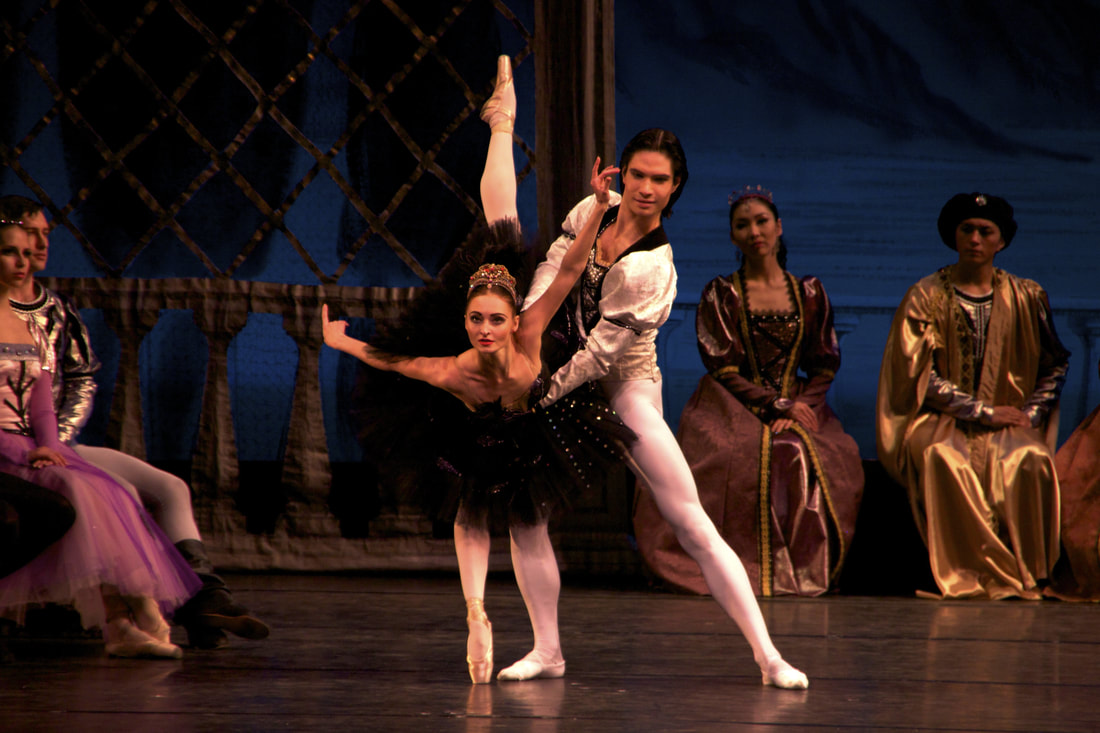No ballet endures like “Swan Lake.” The love story between a young, troubled prince and a bewitched, melancholy swan princess is often viewed as classical ballet’s cliché. But to the devotees, like me, a well-done “Swan Lake” is nothing short of miraculous.
Moscow Festival Ballet didn’t quite meet the miraculous threshold. But the touring company, now making its way across North America, did offer a pleasing rendition of the iconic ballet on Thursday night at Proctors. The dancing, though not exceptional, was enough for the audience to suspend reality and accept the premise of the fairy tale. And the production values were gracefully becoming – offering a lake that shimmered and a palace that glowed. But what sets my heart aflutter is the Tchaikovsky score. The composition, delicate melodies juxtaposed to the crashing crescendos, is what sweeps up an audience to believe that a young man under pressure to marry would find a true love with a large bird. Artistic Director Sergei Radchenko’s handling of the score threatened to toppled the whole production. He chopped it up to accommodate American audiences who don’t want to sit through a three-hour ballet. That’s fine with me – but the snips were obvious. Unfortunately, Moscow Festival Ballet does not have the luxury of an orchestra. A trimmed the score can go unnoticed without glitches at the hands of a skillful music director/conductor. But the more annoying thing was stopping the music for the endless bows the dancers take during the ballet. This was most upsetting during the seductive black swan pas de deux. The music is so bold that the silences for Maria Sokolnikova’s acknowledge of the audience were jarring. Eventually the music resumed, mid-passage without missing a note. And the interrupted audience is expected to return and be tantalized. The mid-ballet bow is a Russian thing that I have come to accept. But I like the American way better – where applause is spontaneous, forcing the action to stop because the audience is overcome with awe and admiration. There is one more Russian – or I should say Soviet -- remnant that was interesting to note. The ending of this “Swan Lake” is a happy one. Rather than the prince and the swan killing themselves, which is the original final scene before the curtain drops, in Moscow Festival Ballet’s “Swan Lake,” the great love between the two overcame the sorcerer who has enslaved the swan princess. Thus, they live happily ever after. During the Soviet era, ballet was supposed to uplift the people – therefore no sad endings. I’ll know when the old regime’s grip on ballet is over when Russians return to the original. Regardless, Moscow Festival Ballet’s “Swan Lake” was a delight, with many of the dancers being singular – again the court jester whose endless tricks with jumps and turns astonished. Sadly, he goes unnamed in the program. The most glorious dancers were not in the lead roles, but were relegated to soloists and corps de ballet. Despite it all, this “Swan Lake” reminded everyone why the ballet has survived more than a century – it remains the best of the best.
0 Comments
Leave a Reply. |
Wendy
|

 RSS Feed
RSS Feed
